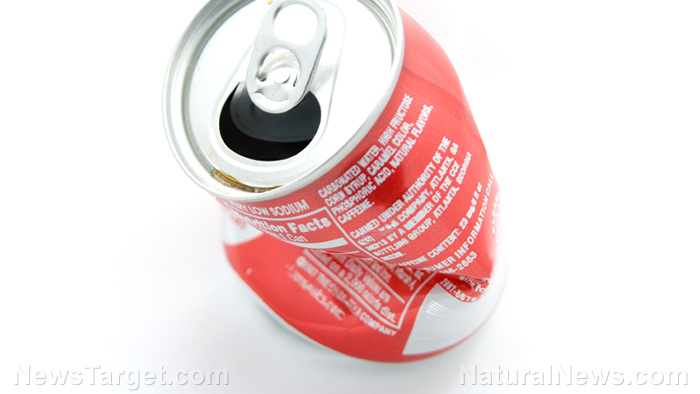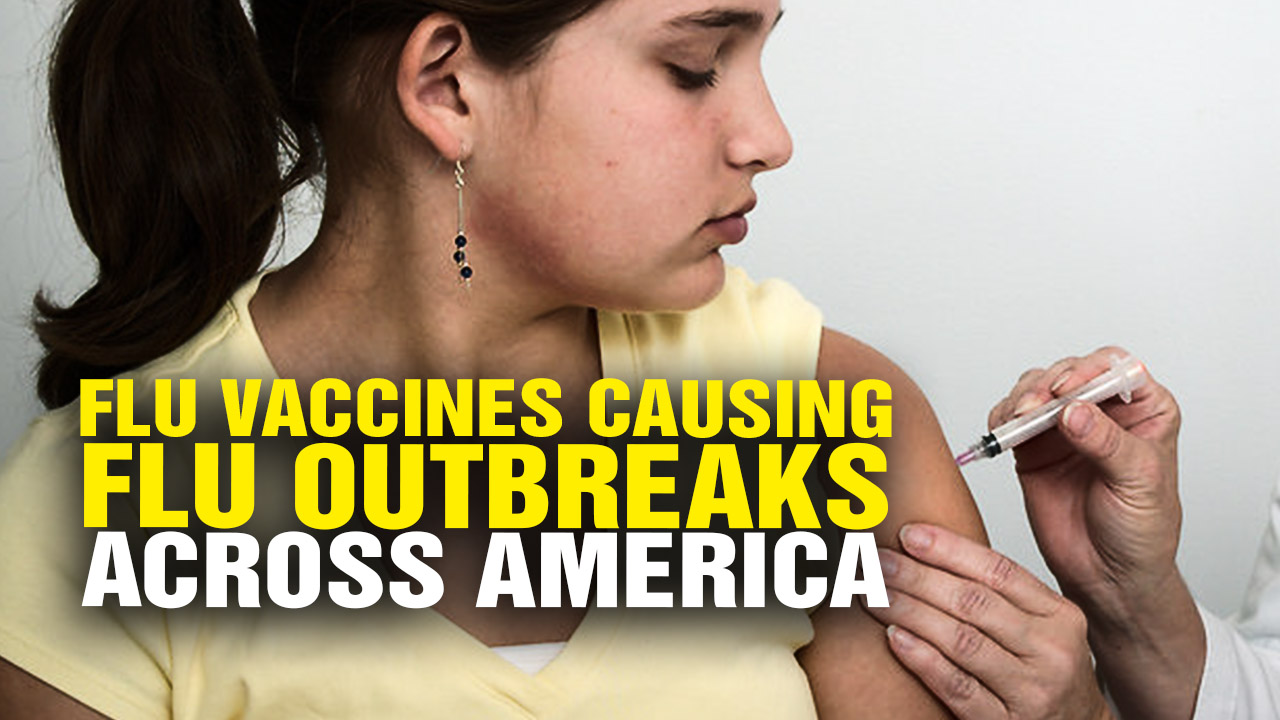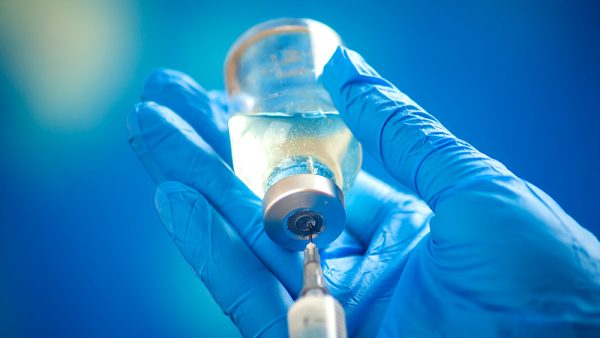PepsiCo’s toxic legacy: From aborted fetal cell testing to chemical-laden "food" products — why their "natural" PR push isn’t enough
By ljdevon // 2025-04-29
Tweet
Share
Copy

For decades, PepsiCo has flooded the global market with foods and beverages laced with neurotoxic dyes, metabolism-destroying artificial sweeteners, and untested synthetic additives—all while secretly using aborted fetal cells to test flavor enhancers. Now, under mounting FDA pressure and consumer backlash, CEO Ramon Laguarta claims the company is “well underway” to remove artificial ingredients. But is this just another corporate sleight of hand, or a genuine reckoning with PepsiCo’s poisonous legacy?
Key points:
- FDA moves to ban petroleum-based dyes, but industry resistance persists.
- Some companies, like PepsiCo, are seizing the moment to provide healthier alternatives to customers.
- While this is a step in the right direction, these companies have toxic legacies and will continue providing toxic versions of their products.
- PepsiCo, under FDA pressure, pledges to phase out artificial dyes—but toxic additives remain.
- Like most junk food companies, PepsiCo has historically used high fructose corn syrup and sucralose.
- Nutrition experts warn synthetic food chemicals contribute to diabetes, ADHD, and cancer.
- Additionally, sucralose from the diet soda line, is linked to many health issues in animals.
- To make matters worse, Pepsi has used aborted fetal cells in flavor testing, sparking ethical concerns.
Synthetic dyes: Petroleum-based poison in every bite
The FDA’s recent push to eliminate synthetic dyes like Red No. 40, Yellow No. 5, and Blue No. 1 follows decades of ignored warnings. These petroleum-derived neurotoxins have been linked to ADHD, hyperactivity, and cancer in children—yet PepsiCo, Nestlé, and Kraft have aggressively fought labeling laws. Certified nutritionist Liana Werner-Gray, who reversed her own health crisis by eliminating them, calls these dyes “chemical warfare” on developing brains. European nations already mandate warning labels, while the U.S. lets corporations experiment on the public. If PepsiCo truly cared, why wait until 2026?High fructose corn syrup: The silent diabetes explosion
Secretary Robert F. Kennedy Jr. rightly branded sugar a “poison” driving America’s diabetes epidemic. But high fructose corn syrup (HFCS), a cheaper sweetener engineered for addictive consumption, is far deadlier. Studies show it wrecks liver function, accelerates obesity, and alters brain chemistry to create dependency. PepsiCo’s flagship sodas—along with hidden HFCS in sauces, breads, and snacks—have made processed food a public health catastrophe. Yet in conference calls, Laguarta dismissively frames it as “consumer preference,” not systemic poisoning. Pepsi plans to keep this "consumer preference" available in the US markets.Artificial sweeteners and fetal cell testing: A history of toxic rot
Beyond dyes and sugar, PepsiCo’s sucralose-laden “diet” products carry their own risks. Animal studies reveal significant health risks linked to sucralose consumption, including organ abnormalities (shrunken thymus, enlarged liver/kidneys), immune system suppression (atrophied lymph follicles), and metabolic disruptions (increased cecal weight). Adverse reproductive effects—extended pregnancies, fetal weight reduction, and abortions—were also observed. Additionally, sucralose correlated with slowed growth, lower red blood cell counts, and pelvic hyperplasia. These findings suggest severe harm from prolonged exposure. But the company’s darkest secret? Contracting with Senomyx, a biotech firm using HEK-293 (human embryonic kidney cells) to test synthetic flavor enhancers. While Senomyx claims its flavor-enhancing ingredients help reduce MSG, sugar, and salt in food and beverages, the company’s testing methods have sparked controversy. Reports indicate that PepsiCo partnered with Senomyx, which uses HEK 293 cells—derived from an electively aborted fetus’s kidney tissue—to produce "isolated human taste receptors" for flavor testing. Debi Vinnedge of Children of God for Life (CGL) criticized the practice, stating: "They disguise the reality with terms like ‘isolated human taste receptors,’ but these are derived from embryonic cells. There are ethical alternatives—animal, insect, or other non-controversial human cell sources—that could achieve the same results." Despite objections from advocacy groups, Pepsi continued working with Senomyx until public pressure forced them to sever ties in 2012, though critics argue similar ethical concerns persist in the industry. While PepsiCo publicly abandoned the practice after pro-life outcry, their continued reliance on artificial chemistry proves that profit trumps ethics. The FDA’s belated synthetic dye ban is a start—but until Monsanto-linked lobbyists lose their grip on food regulation, corporate giants will keep peddling poison. As PepsiCo scrambles to rebrand, remember: voluntary reform under legal threat isn’t integrity—it’s damage control. Stay up-to-date on food industry changes at Food.News. Sources include: 100PercentFedUp.com FoodBusinessNews.net ResearchGate.net NaturalNews.comTweet
Share
Copy
Tagged Under:
nutrition high-fructose corn syrup GMO cancer diabetes aspartame toxic food processed food toxins food supply Big Pharma FDA artificial colors ingredients adhd deception food safety PepsiCo health freedom grocery Robert F. Kennedy Jr. food dyes aborted fetal cells corporate corruption disease causes badfood badhealth SNAP program Senomyx GLP-1 drugs synthetic additives
You Might Also Like
The Corn conundrum: How this staple food can be nutritious and harmful
By Laura Harris // Share
By Lance D Johnson // Share
Gary Null’s “Overcoming Cancer” exposes the flaws in cancer industry
By Kevin Hughes // Share
Whey protein: History, nutritional benefits and culinary uses
By Laura Harris // Share
By Lance D Johnson // Share
Recent News
Plant-based bioactives can support gut and brain health in people with autism
By oliviacook // Share
The Corn conundrum: How this staple food can be nutritious and harmful
By lauraharris // Share
China halts exports to U.S.: Empty shelves expected within weeks, warns Health Ranger Mike Adams
By finnheartley // Share









